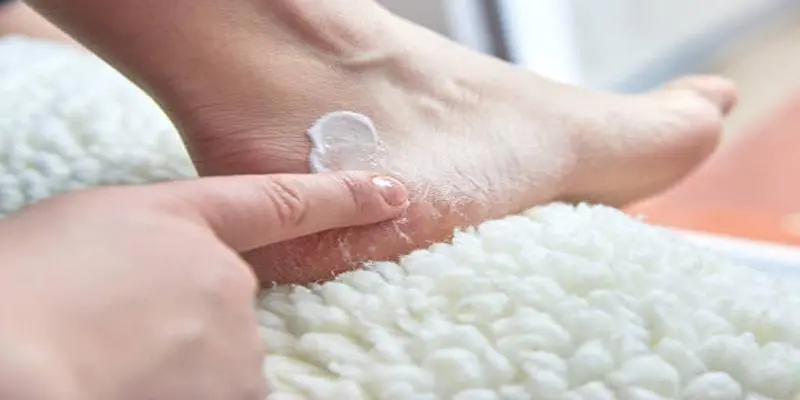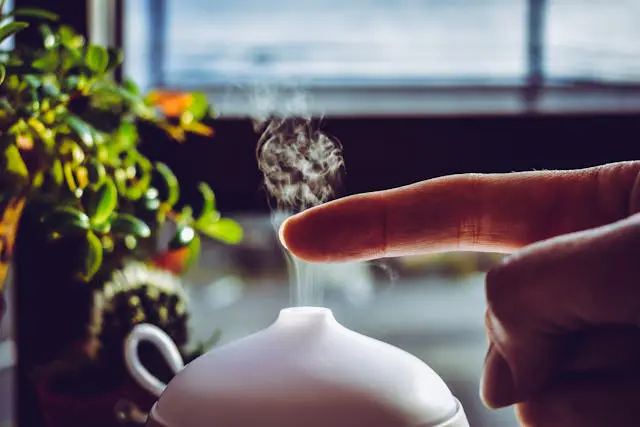Dry and chapped skin on your hands and feet is not merely a cosmetic issue; it can also lead to discomfort and pain, especially during colder months or for those with naturally dry skin. Seeking effective treatments is vital for both the appearance and health of your skin. This comprehensive guide provides various methods to tackle this common problem, ranging from maintaining hydration to using natural home remedies. By implementing these strategies, you can aim to achieve softer and smoother skin on your hands and feet, enhancing both comfort and confidence.
Ensuring Proper Hydration
To prevent and alleviate dry, chapped skin, it's essential to maintain hydration both internally and on the skin's surface. Here are some tips to help you stay hydrated:
Drink Plenty of Water
Make sure to drink enough water daily to keep your hydration levels optimal. Staying hydrated from within is crucial for skin health. Water helps to maintain skin flexibility, smoothness, and radiance by supporting its elasticity and natural functions. Proper hydration can counteract dryness, flaking, and dullness, leading to a healthier complexion.
Use Hydrating Creams and Lotions
Applying a high-quality moisturizer regularly to your hands and feet is crucial for skin health. Moisturizers help to seal in hydration and aid in repairing the skin's protective barrier, creating a protective layer that prevents moisture loss. This routine can help prevent dryness, cracks, and irritation, promoting overall skin health. Make moisturizing your hands and feet a daily habit to keep them nourished and supple.
Use Humidifiers
Using a humidifier in your home, particularly during dry seasons like winter, can help maintain a comfortable and skin-friendly humidity level indoors. Humidifiers release water vapor into the air, which can alleviate dry skin, prevent respiratory issues, and maintain optimal moisture levels. Regular use of a humidifier can enhance overall well-being by promoting healthier skin and easier breathing, especially in arid climates or during colder months.
Gentle Exfoliation Practices
Exfoliation is vital for removing dead skin cells and promoting the growth of new, healthy skin. It's essential for achieving smooth and soft skin on your hands and feet.
Soft Loofah or Brush: Gently exfoliate your skin with a soft loofah or brush using circular motions to remove dead skin without causing irritation.
Homemade Scrubs: A mixture of sugar or salt with olive oil can serve as an effective, natural exfoliating scrub.
Chemical Exfoliants: Products containing alpha-hydroxy acids (AHAs) or beta-hydroxy acids (BHAs) can help exfoliate the skin more deeply but gently.
Consistency and Gentleness: Regular exfoliation is important, but overdoing it can lead to skin damage.
Deep Hydration Therapies
Deep hydration treatments, such as overnight masks or heavy creams, are essential for healing dry, cracked skin. These products often contain ingredients like hyaluronic acid, glycerin, and ceramides, which are designed to lock in moisture and promote skin repair while you sleep. Applying these treatments to your feet and hands before bed and covering them with cotton gloves or socks can enhance absorption and effectiveness, leading to smoother, more supple skin.
Incorporating oils like coconut, olive, or almond into your skincare routine can provide an extra hydration boost. These natural oils are rich in vitamins and fatty acids, which are essential for maintaining the skin's barrier and preventing moisture loss. Regular application after showering can significantly improve skin texture and elasticity.
Preventive Care Tactics
To strengthen your preventive care routine against dry, cracked skin, consider these daily habits:
Avoid Hot Water Baths: Extremely hot water can strip the skin of its natural oils, worsening dryness. Opt
Recent
See All2025-08-03
Discovering the Skincare Advantages of Facial Steamers and Humidifiers
2025-08-03
Embracing Your Natural Radiance Through Self-Care and Healthy Living
2025-08-03
Discovering the Mysteries of Collagen: Its Essential Functions, Abundant Sources, and Types for a Glowing Life
2025-08-03
Anti-Aging Skincare: Separating Hype from Reality
2025-08-03
Harnessing Nutrition for a Radiant Skin: Dietary Choices for a Luminous Appearance
2025-08-03
Unlocking the Power of Hydration for Skin Health
2025-08-03
The Impact of Sleep on Skin Health: Why Quality Slumber is Key to Radiant Skin
2025-08-03
Unveiling the Secrets of Collagen: Benefits, Origins, and Varieties for a Radiant Life
2025-08-03
Embrace the Skincare Power of Green Tea
2025-08-03
Embracing Sustainability: A Guide to an Eco-Friendly Lifestyle
Newsletter
Get life tips delivered directly to your inbox!










